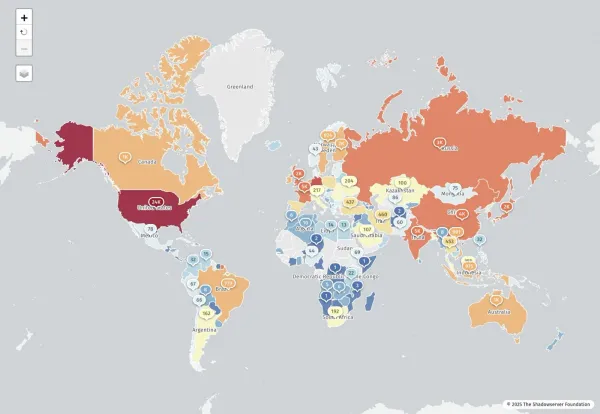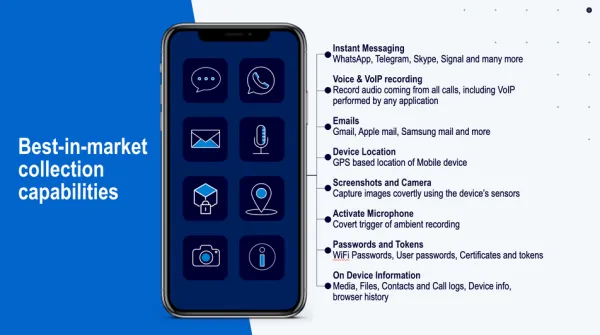Google Mounting Legal Challenges: A Comprehensive Analysis of Privacy Violations and Antitrust Cases

The tech giant faces billions in fines and growing scrutiny as courts rule against its data collection and market dominance practices
Google continues to face unprecedented legal challenges across multiple jurisdictions, with a recent $425 million jury verdict in San Francisco adding to a mounting pile of privacy violations and antitrust penalties that collectively exceed $15 billion. This latest ruling represents just one piece of a complex legal puzzle that spans continents and regulatory frameworks, painting a picture of systematic privacy violations and anti-competitive behavior.
The $425 Million Web & App Activity Ruling: Privacy Promises Broken
In the most recent development, a federal jury in San Francisco ordered Google to pay $425 million after concluding that the company improperly harvested data from users who had explicitly disabled their "Web & App Activity" tracking setting. The class action lawsuit, dating back to 2020, revealed that despite user instructions to turn off tracking, Google continued to monitor activity through partnerships with widely used apps like Uber, Instagram, and Venmo.
The jury found that Google violated privacy rights on two separate counts, though it determined the company did not act with malice, preventing punitive damages from being awarded. The case covered tens of millions of users and well over 100 million devices, representing one of the largest privacy settlements in recent years.
Key findings from the case included:
- Google spent nearly a decade collecting data from users who had opted out of tracking
- The company stored user information even while assuring users they could control what was saved
- Google's analytics tools served as back channels for data collection through third-party apps
- Despite Google's claims that data was anonymized and encrypted, the court certified it as a class action
Google spokesperson Jose Castaneda signaled the company's intent to appeal, stating the decision "misunderstands how our products work" and that their "privacy tools give people control over their data."
Texas Takes the Lead: Record-Breaking $1.375 Billion Settlement
The $425 million federal ruling follows an even larger settlement in Texas, where Attorney General Ken Paxton secured a historic $1.375 billion agreement with Google in May 2025. This settlement, which dwarfs all previous state-level privacy recoveries against Google, addressed allegations that the company violated Texas privacy laws by collecting geolocation data, incognito search information, and biometric data without proper consent.
The Texas case revealed Google's practices included:
- Secretly tracking people's movements, private searches, and voiceprints
- Collecting facial geometry data through various products and services
- Continuing location tracking even when users disabled Location History settings
- Gathering biometric data without informed consent
This Texas settlement represents the largest recovery ever obtained by a single state attorney general against Google for privacy violations. Paxton's office noted that no other state had previously secured a settlement against Google exceeding $93 million, and even a 40-state coalition had only achieved $391 million—nearly a billion dollars less than Texas's recovery.
The $5 Billion Incognito Mode Deception
Perhaps the most publicly visible of Google's privacy scandals involved its "Incognito" mode, which the company settled for an estimated $5 billion in value in early 2024. The class action lawsuit, filed in 2020, alleged that Google misled users into believing their browsing activity would remain private when using Chrome's incognito mode.
The settlement required Google to:
- Delete billions of data records reflecting users' private browsing activities
- Change incognito mode disclosures to be more transparent about data collection
- Allow users to block third-party cookies by default for the next five years
- Implement clearer warnings about what information is still collected
Internal Google emails revealed during the litigation showed employees' awareness of the misleading nature of incognito mode marketing. One Google marketing executive wrote to CEO Sundar Pichai in 2019: "We are limited in how strongly we can market incognito because it's not truly private, thus requiring really fuzzy, hedging language that is almost more damaging."
Another employee recommended changing the incognito splash page to say: "You are NOT protected from Google."
While Google didn't pay monetary damages as part of the main settlement, individual users retained the right to sue for damages in state courts, with over a thousand individual claims already filed in California.
European Union: A Decade of Antitrust Enforcement
Google's challenges extend far beyond privacy violations to fundamental questions about market competition. The European Union has been particularly aggressive in pursuing antitrust cases against the tech giant, resulting in over €8 billion in fines since 2010.
The Google Shopping Case: €2.42 Billion Fine Upheld
In September 2024, the EU's highest court upheld a €2.42 billion fine imposed in 2017 for Google's anti-competitive promotion of its Shopping service. The European Court of Justice confirmed that Google abused its dominant position by favoring its own comparison shopping service in search results while demoting competing services.
Latest EU Action: €2.95 Billion Ad-Tech Fine
Most recently, in September 2025, the European Commission imposed another €2.95 billion ($3.5 billion) fine on Google for breaching competition rules by favoring its own digital advertising services. This marked the fourth such antitrust penalty from the EU, with regulators ordering Google to end its "self-preferencing practices" and address "conflicts of interest" in the advertising technology supply chain.
The EU's cumulative actions against Google include:
- €2.42 billion for Google Shopping violations (2017, upheld 2024)
- €4.34 billion for Android bundling practices (2018, under appeal)
- €1.49 billion for AdSense exclusivity clauses (2019, later annulled on procedural grounds)
- €2.95 billion for ad-tech self-preferencing (2025)
United Kingdom: £5-7 Billion in Pending Lawsuits
The UK has emerged as another major front in the legal battle against Google, with multiple class action lawsuits seeking billions in damages for alleged search market dominance abuse.
Current UK litigation includes:
- A £5 billion class action filed in April 2025 by competition law expert Or Brook, representing UK advertisers allegedly overcharged due to Google's search monopoly
- A separate £7 billion consumer class action lawsuit that received tribunal approval to proceed to trial
- Claims covering all UK-based organizations that used Google's search advertising services from 2011 onward
The UK's Competition and Markets Authority has found that Google earned 90% of all revenue in the search advertising market, supporting claims of monopolistic behavior. The lawsuits allege Google secured its dominance through:
- Requiring Android manufacturers to pre-install Google Search and Chrome
- Paying Apple billions to remain the default search engine on iPhones
- Designing advertising tools to work better within Google's ecosystem than for competitors
Global Pattern of Anti-Competitive Behavior
These cases collectively reveal a consistent pattern of behavior across Google's operations:
Data Privacy Violations:
- Systematic collection of user data despite explicit opt-outs
- Misleading users about the extent of data collection in "private" modes
- Using third-party partnerships to circumvent user privacy choices
- Collecting biometric data without proper consent
Market Dominance Abuse:
- Using default search agreements to maintain monopolistic positions
- Self-preferencing Google services in search results and advertising
- Creating technical barriers for competitors
- Leveraging Android's market position to bundle services
Financial Impact and Corporate Response
The combined financial impact of these cases represents a significant cost for Google, though still a small fraction of the company's massive revenues. With Alphabet reporting $350 billion in consolidated revenues for 2024, even the largest settlements represent less than 1% of annual income.
Financial breakdown of major settlements and fines:
- Texas privacy settlement: $1.375 billion (2025)
- EU ad-tech fine: €2.95 billion (~$3.5 billion, 2025)
- Incognito mode settlement: ~$5 billion in value (2024)
- Federal Web & App Activity verdict: $425 million (2025)
- Previous EU fines: €8+ billion (2017-2025)
Google has consistently denied wrongdoing in most cases and indicated plans to appeal many of the rulings. The company argues that users choose Google services because they're helpful, not because alternatives don't exist, and maintains that its privacy tools give users meaningful control over their data.
Implications for the Tech Industry
These legal challenges represent more than just financial penalties for Google—they signal a fundamental shift in how regulators and courts view Big Tech's responsibilities regarding user privacy and market competition.
Key trends emerging from the litigation:
- Increased scrutiny of "privacy theater"—superficial privacy controls that don't actually protect user data
- Growing willingness of courts to find privacy violations even without proof of malicious intent
- Expansion of state-level privacy enforcement beyond traditional federal oversight
- International coordination in addressing tech monopolies
The cases also highlight the limitations of self-regulation in the tech industry. Despite Google's claims of implementing privacy protections and competition-friendly policies, courts and regulators have consistently found these measures insufficient to address fundamental structural problems.
Looking Ahead: More Legal Challenges on the Horizon
Google faces additional legal challenges that could further reshape its business model:
Pending U.S. Antitrust Actions:
- Department of Justice seeking to break up Google's search monopoly
- Potential forced divestiture of Chrome browser
- Ongoing ad-tech monopolization trial
International Developments:
- Japan Fair Trade Commission cease-and-desist orders
- Continued EU Digital Markets Act enforcement
- Additional state attorneys general investigations
Conclusion: A Reckoning for Big Tech
The mounting legal pressure on Google represents a broader reckoning for the tech industry's approach to user privacy and market competition. As regulators worldwide become more sophisticated in their understanding of digital markets and more willing to impose meaningful penalties, the era of unchecked tech dominance appears to be ending.
For Google, the challenge extends beyond paying fines to fundamentally restructuring business practices that have driven profits for decades. The company's ability to adapt to this new regulatory environment while maintaining its technological leadership will likely determine its long-term success.
The cases also demonstrate the importance of user awareness and advocacy in holding tech companies accountable. As privacy violations become more visible and their impacts better understood, public pressure for meaningful protection will likely continue to grow.
These legal developments mark a turning point in the relationship between Big Tech and society, with courts and regulators increasingly willing to challenge the fundamental assumptions about data collection and market power that have shaped the digital economy. The outcomes of these cases will likely influence how all major tech companies approach privacy and competition for years to come.
For businesses and individuals, these cases underscore the importance of understanding how personal data is collected and used, and the power of collective action in addressing corporate overreach. As the legal landscape continues to evolve, staying informed about these developments becomes crucial for anyone navigating the digital world.
Sources and Further Reading:
- The European Union's Antitrust Case Against Google: A New Era of Tech Regulation
- Google Faces $5 Billion UK Lawsuit Over Search Dominance: An In-Depth Analysis
- Texas Secures $1.4 Billion Settlement with Google Over Privacy Violations
- Google Settles $5B Lawsuit Over Improperly Tracking Incognito Mode Users





